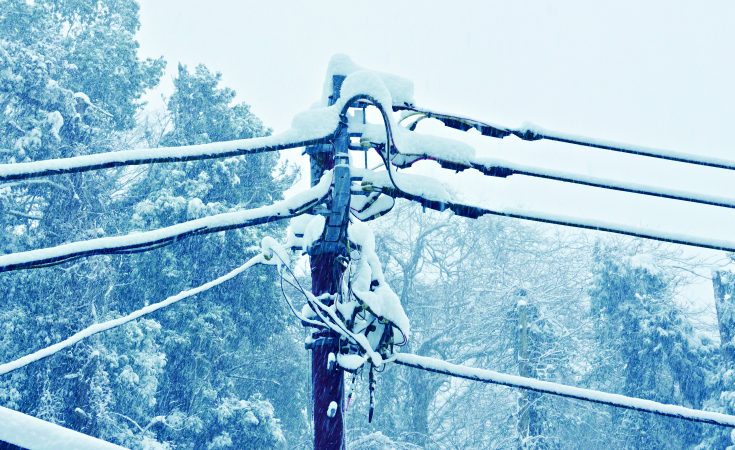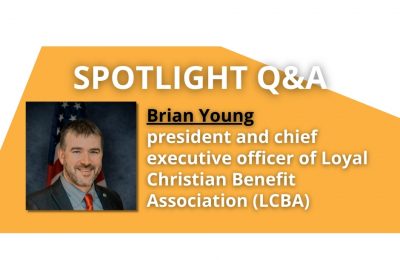 Judy Rosatti is the manager of MBA EnergyAdvisors, an affiliate of the Manufacturer & Business Association (MBA). She has an abundance of consulting experience assisting a variety of businesses in reducing their costs and increasing their bottom line for the past 25 years.
Judy Rosatti is the manager of MBA EnergyAdvisors, an affiliate of the Manufacturer & Business Association (MBA). She has an abundance of consulting experience assisting a variety of businesses in reducing their costs and increasing their bottom line for the past 25 years.
During extreme weather – like the intense cold experienced this past December and January – there are many power and safety issues for employers to consider. One of the biggest challenges small businesses face during cold months is preparing for potentially volatile energy prices. Whether you’re in a fixed or variable rate product, usage of energy can cause significant impact to your energy bills.
1. Review Your Energy Plan
If you choose your energy plan during temperate months, a variable rate plan might look great. After all, it allows you to take care of your energy needs for a lower price. Unfortunately, energy prices can skyrocket during the winter, making your variable rate plan much less appealing. It is important to recognize the averages and how the savings in the moderate months could offset the increase in the extreme months. However, beware of certain suppliers who may raise your rates month over month just because they can.
With a variable rate plan, energy rates change based on market demand. When there is very cold or very hot weather, your energy costs can rise significantly. A variable rate plan can result in lower costs across the year as a whole, but your business must be able to take on the risk of price spikes – and the budget uncertainty that comes with it.
On the other hand, with a fixed rate plan, the price you pay per kilowatt of energy doesn’t change – regardless of the weather or energy market. A fixed rate plan may cost a little more per kilowatt hour initially, but the markup can significantly pay off by protecting your budget from market spikes – and giving you the peace of mind that comes from a stable rate.
Choosing a fixed rate plan is a good way to make sure your small business isn’t at the mercy of weather and energy market fluctuations. Review your last energy bill or your original contract to find out if you’re on a fixed or variable rate plan.
The primary benefit of fixing your electricity rate is the price protection it offers and the assurance that the rate will stay the same throughout the duration of the contract. On the flip side, if the price of electricity falls, you’ll be stuck paying higher rates until the end of the term. Fixed contracts are a gamble. They’ll protect you if the prices go up, but you’ll pay more when the rates decrease. On a variable rate electricity plan, your rates will fluctuate based on wholesale prices. When the price of energy goes down, you’ll pay less, but your rates will increase if the prices go up. The biggest disadvantage that customers experience with variable rate plans is the possibility that the rates can increase at a moment’s notice. Fixed rate plans can be a little higher than a variable plan but that’s because the supplier is taking all the risk with a fixed plan so you pay a premium for that protection.
2. Check Your Energy Plan Expiration
Do you know when your current energy contract will expire? When it does, will you need to take action to renew the plan, or will it auto-renew? For that matter, when was the last time you shopped around for energy suppliers? It’s important to know when your current energy plan is expected to expire, what steps you’ll need to take to renew it and if there are better plans and rates you should consider.
3. Lower Your Usage
Whether your business is on a fixed or variable rate plan, you’re undoubtedly paying for energy based on how much you use per month. Businesses tend to use more energy during the winter than spring or fall because your HVAC is constantly working to keep your business comfortable. So another effective way to manage and potentially reduce your energy expenses is to use less energy. There are several strategies you can explore to help manage consumption:
Before you shop or renew, consider how your energy plan helps your business meet its unique needs.
- Schedule an HVAC maintenance check early in the season.
- Install smart thermostats. Smart thermostats allow you to schedule automatic temperature drops overnight and on weekends when no one is in
the building. - Upgrade to energy-efficient equipment where possible. New equipment can be costly, but it often consumes much less energy than older models, and that can make a difference for your energy bill.
- Go automated! Automatic light switches can help substantially reduce your power usage by ensuring lights are off when no one is in the room.
- Check the insulation. A properly-insulated building will help keep your warm air in and cold air out.
- Incentivize employees for helping with energy-saving goals.
Despite frigid temperatures, you can take control of your energy costs by preparing ahead of time and making sure your energy plan is best suited for your small business.
For more information, contact Judy Rosatti at MBA EnergyAdvisors at jrosatti@mbausa.org or 814/833-3200.













